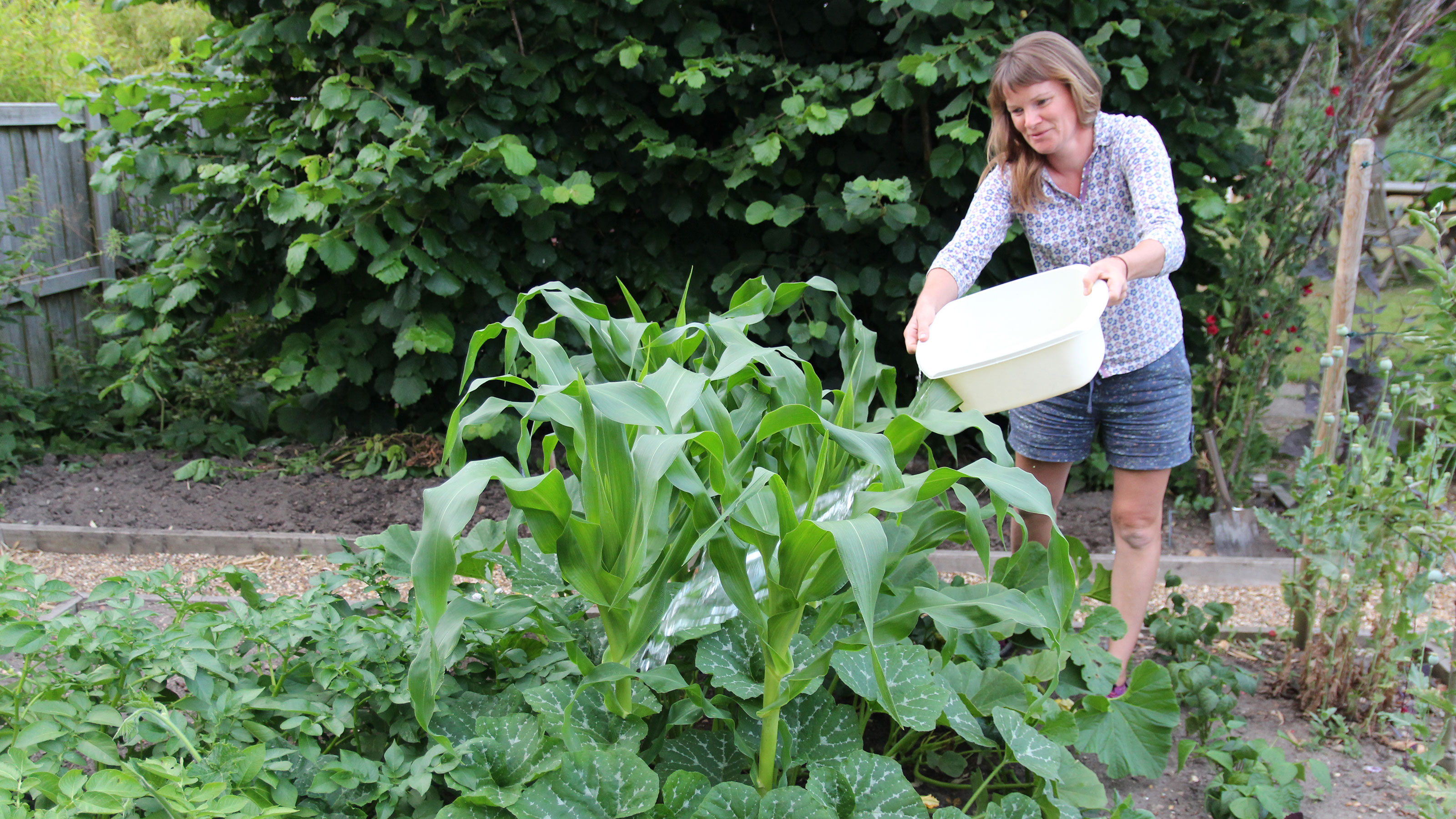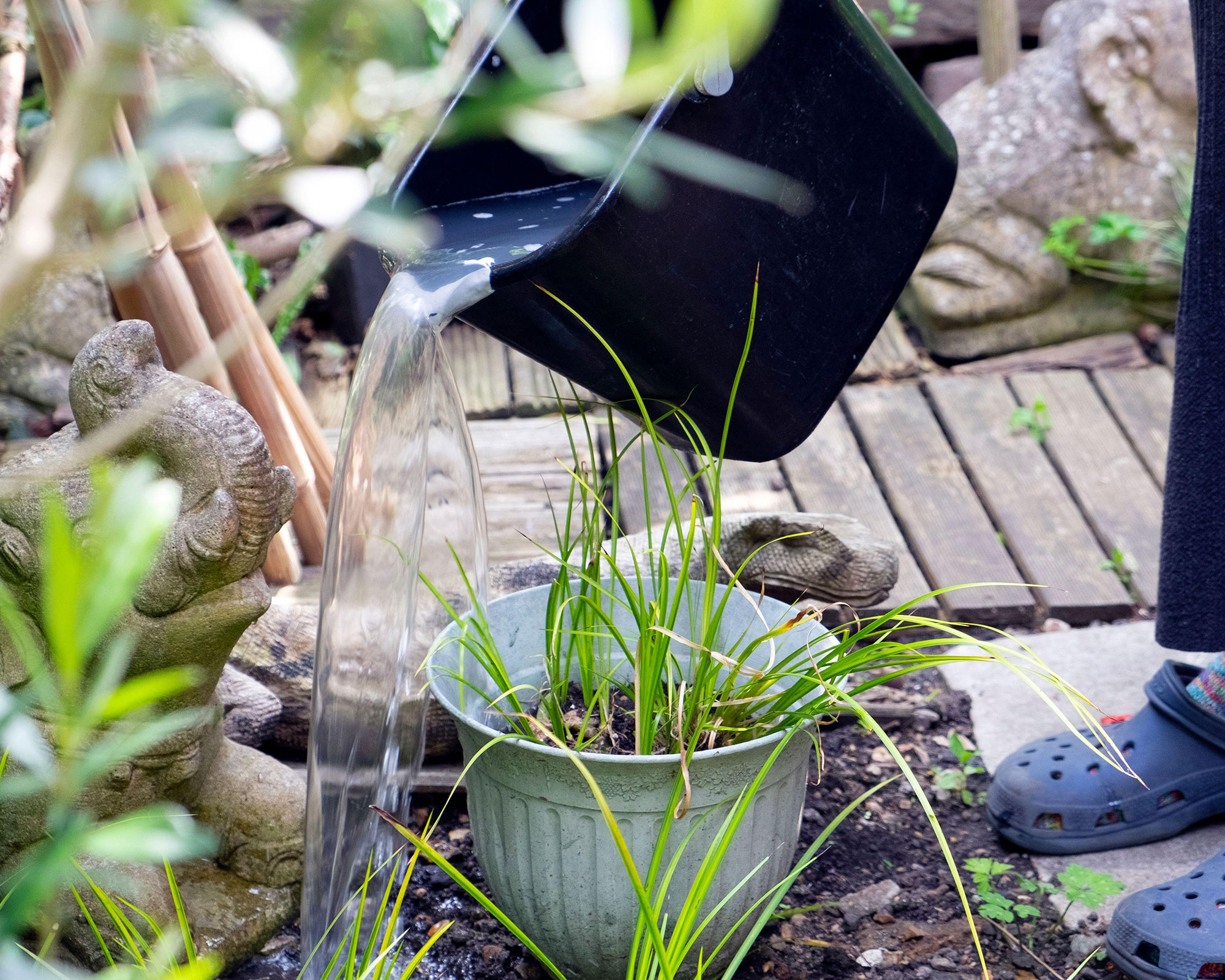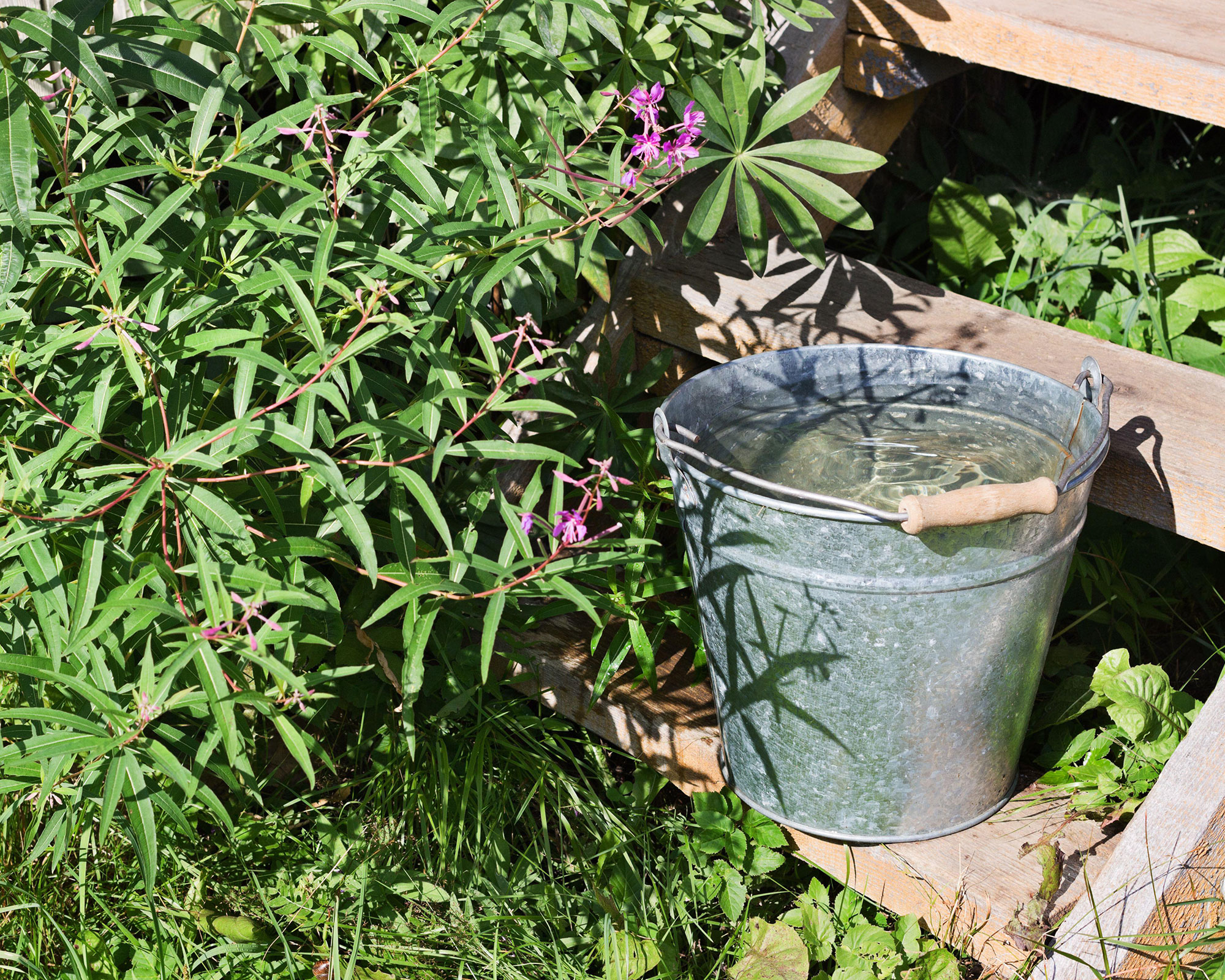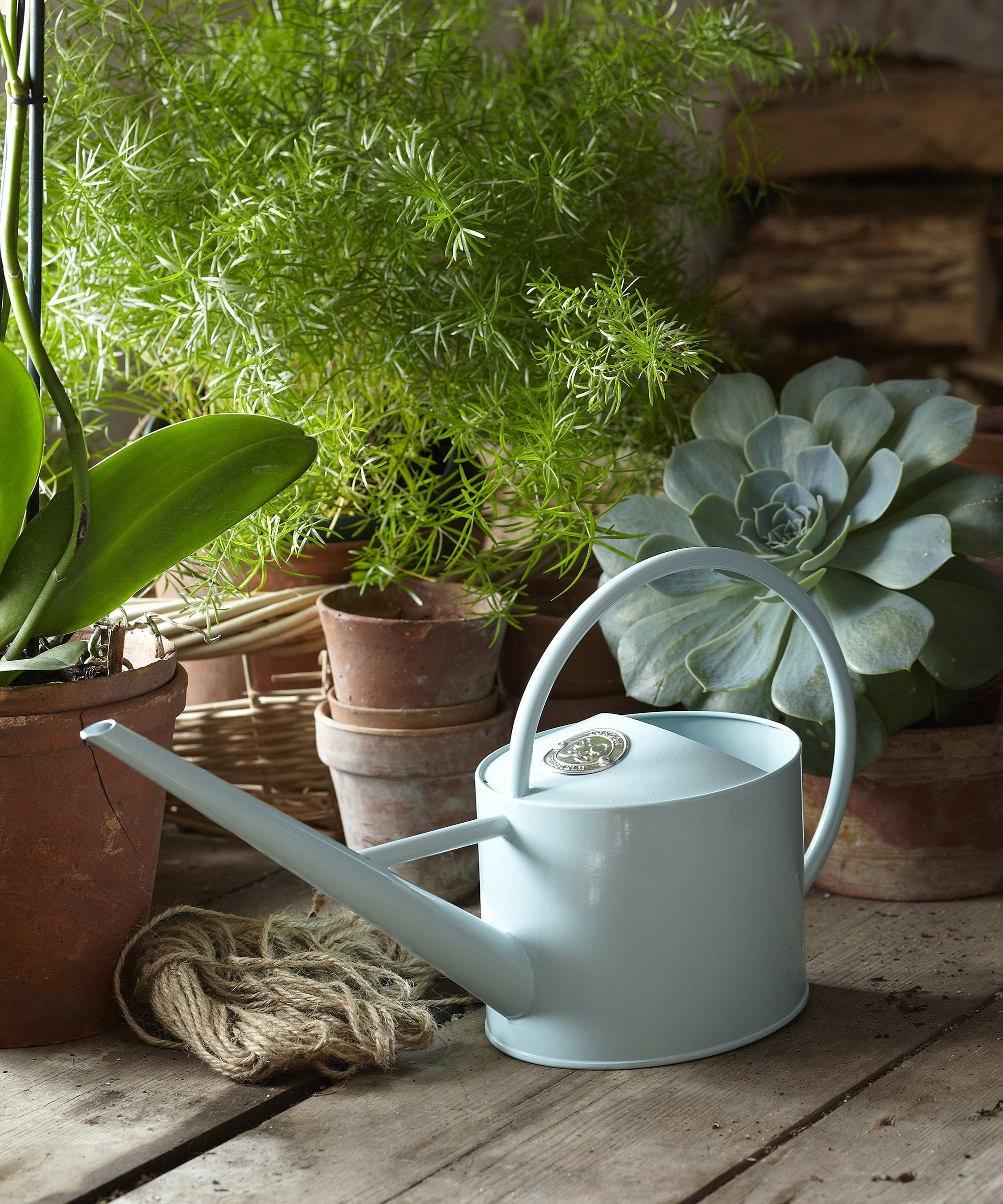Expert offers a simple recycling tip to save water in the garden this summer
As the threat of water shortages increases, experts suggest recycling greywater from indoors to keep your plants healthy and hydrated


With high temperatures and dwindling water supplies, keeping your plants hydrated is becoming increasingly difficult, but one expert is advising there is a simple solution for watering plants that we should all be considering this summer.
Recyling your ‘greywater from baths, kitchen sinks and even washing machines is a great short-term solution to hydrating your garden sustainably when water shortages loom,' according to Nadine Baggaley, director of greenhouse company The Greenhouse People.
‘Soil and potting composts are very efficient for filtering contaminants, so it is generally safe to use greywater on your plants,’ she says.

Set up a simple water recycling system
If you’re looking for easy ways to save water this summer, set up a water-saving system now.
And the good news is that this garden water saving tip doesn’t have to be complex. Just keep a bucket near your kitchen sink or bath and fill accordingly. Empty into storage containers at the end of the day and start fresh every morning. You can also use greywater indoors, to flush the WC and the waste disposal system, if you have one.
‘Best practice is to use water on your plants that hasn’t been exposed to harsh chemicals or contains too much salt content,' says Nadine, 'so it's best to avoid using leftover water from your dishwasher or you may start to see salt residue developing on your plants.’

Let water stand first
While we all know the rainwater benefits for watering plants, you might be worried that water from the washing machine, baths and dishwashing in the sink will be contaminated with detergents and other additives which could damage plants.
The advice, says professional Jason White, CEO of advice blog All About Gardening, is to let your greywater sit in storage first before using it to water plants.
‘Don’t use fresh greywater on plants right away because any surplus of active ingredients in it can weaken plants,' he says. 'Allow the water to stand for 24 hours on a hot summer day, two days if it’s spring, or three days during winter.’
Storing greywater this way allows any microorganisms to break down active chemical ingredients. Also, any contaminants will sink, making them easy to filter out before watering. However, don’t store greywater for too long, Jason warns, or you will risk pathogens developing which can cause damage to roots, flowers and foliage.

Be cautious with edible plants
Most gardening experts suggest that whilst greywater is invaluable in the garden to keep your flower beds and patio plants well hydrated when water is in short supply, to avoid any risk of contamination, it’s probably best to avoid using it on edible plants growing in raised garden beds, a vegetable garden or pots.
‘There may be bacteria present that could contaminate the food,' says Bruce Coleman, gardening expert at VeryInformed.com, a homes and DIY advice website.

Jayne Dowle is an award-winning gardening, homes and property writer who writes for publications including Sunday Times Home, Times Bricks & Mortar, Grand Designs, House Beautiful and The Spectator. She was awarded the Garden Journalist of the Year accolade at the Property Press Awards in 2021.
